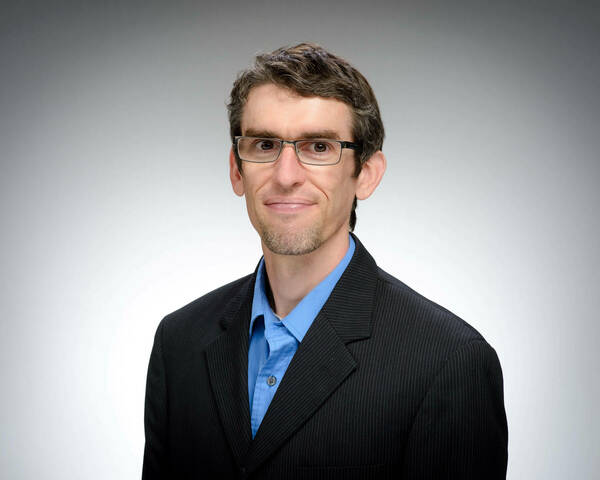Postdoctoral Research Associate Eckhart Spalding brings his childhood dreams of discovering other planets to life
Eckhart Spalding, Postdoctoral Research Associate in the Department of Physics and Astronomy, recalls his fascination with astronomy being sparked by a book he read as a child.

“It left a profound impression on me,” he said. “Eventually I came to see physics as the road to understanding the way the universe works, and engineering was the vehicle to that adventure.”
Spalding’s research involves developing instrumentation for taking observations of exoplanets: planets that orbit other stars. He explained that his work identifies what kinds of gases are present in the exoplanets' atmospheres with direct imaging methods.
“In the years to come, astronomers hope to eventually detect 'biosignatures,' or patterns of gases that would indicate that life exists on the surface of that planet. If life is ever discovered on an exoplanet, direct imaging will play a big role,” he explained.
The study of exoplanets remains a cutting-edge and developing field of study. Spalding expressed the exhilaration of being at the forefront of ongoing research.
“More than five thousand exoplanets are now known, and we’re still just seeing the tip of the iceberg,” he said.
He explained that being at the University of Notre Dame offers exciting opportunities for his research and provides a collaborative environment.
“Notre Dame is a hosting institution with excellent physical infrastructure, private funding, and a vibrant research community,” he said. “We have a big and stimulating physics and astronomy department, enabled by a super-supportive staff.”
Spalding also appreciates the opportunities to hear from “visiting luminaries” from completely outside of his field and meet people participating in different areas of research offered at Notre Dame. He recently won the College of Sciences’ first Postdoc Lightning Talk Competition.
“It was a good exercise to break out of the jargon-laden speech of the day-to-day workplace and speak to a more general audience,” he said. “It was also great to meet postdocs I didn’t know, from very different fields.”
Spalding attributes a great deal of his success to his mentors and fellow researchers and reflected on the “value of absorbing a wide range of other people’s experiences and perspectives.” His advice to future postdocs would be to take in as much as possible and to be proactive about meeting people.
Originally published by at science.nd.edu on November 21, 2022.
Latest Research
- Notre Dame celebrates 125 years of wireless innovation and educationThe University of Notre Dame is celebrating 125 years of wireless research, education and innovation with a modern re-enactment of one of the first long-range wireless transmissions conducted in the United States and a full-day symposium of panels and…
- Student Researcher Investigates PFAS AccumulationScat, something that most may not think much about — or even like dealing with — is, for Juan Flores, a fascinating look into animal behavior and aquatic chemistry. His research, with the guidance of Daniele Miranda, assistant research…
- Five Notre Dame faculty elected AAAS Fellows as program celebrates 150th anniversaryToday, the American Association for the Advancement of Science (AAAS), one of the world’s largest general scientific societies and publisher of the Science family of journals, announced its newest class of AAAS Fellows, including five faculty from the University of Notre Dame. This class represents…
- Visit by Fr. Paolo Benanti, AI advisor to Pope Francis, deepens Notre Dame’s commitment to socially responsible data and AI innovationBest known for providing expert advice on machine learning and artificial intelligence (AI) to Pope Francis, Fr. Paolo Benanti has a contagious enthusiasm for the ethics of technological advancement.…
- Subhash L. Shinde elected 2024 MRS Fellow…
- Notre Dame launches University-wide Democracy Initiative to advance research, education and policy efforts to sustain and enhance democracyThe University of Notre Dame has launched an ambitious new Democracy Initiative, an interdisciplinary research, education and policy effort focused on advancing solutions to sustain and strengthen global democracy.…













